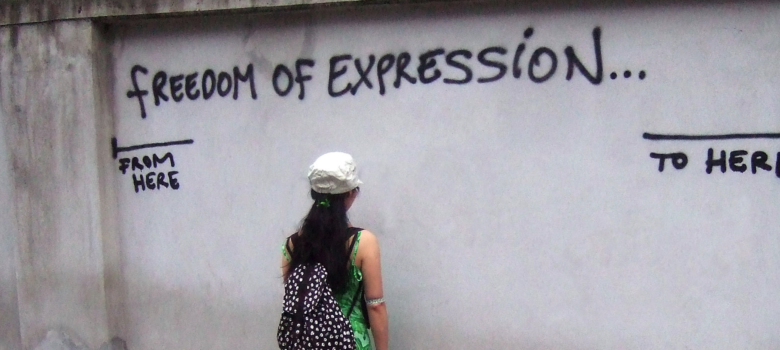Google was scheduled to appear before the Standing Committee on Canadian Heritage yesterday to discuss Bill C-18 and its test of the removal of links to Canadian news services for a small percentage of its users, but the meeting was postponed due to technical difficulties. That ensured that the big Bill C-18 news of the day did not come from the hearing, but rather from an exceptional Ricochet Media article featuring comments from Senator Paula Simons that should heighten concern about the government’s intent with Bill C-18. Senator Simons, a longtime journalist and Trudeau appointee to the Senate, raises many concerns with the bill (and a great line that “honest to god, I feel that this is written by people who have never used the Internet”), but I think this is the key passage, which opens the door to targets beyond Google and Facebook:
Then there’s the question of what would happen down the road if Google and Facebook were no longer profitable? Simons told Ricochet that when she raised that question with staff in the Heritage ministry, she was told they “would turn to TikTok.”“I said, ‘Wait a minute! TikTok doesn’t share news links,’” Simons recalled. “And staff said, ‘TikTok shares news stories in other ways. It talks about the news.’ I said, ‘Woah, wait a minute! That’s a fair-use argument.’…Then the official said to me, ‘Lots of Canadians get their news from TikTok.’” But, she pointed out, if a content creator on TikTok talks about something they read, that’s not the same as actually sharing a news story.
Some context may be helpful to fully appreciate the risks from this vision of Bill C-18. Supporters of the bill have relied on an extensive disinformation campaign to suggest that links aren’t a core part of the bill. The reality is far different. The Ministry of Justice’s Charter Statement for Bill C-18 explicitly states that:
a digital news intermediary could make news content available by reproducing it or by facilitating access to the news content, including by generating links to news content. Facilitating access to news content could be done through any means, including by way of an index, aggregation or ranking, all of which are methods used by online platforms to organize and distribute news content
The central importance of linking was confirmed by Owen Ripley, the lead Canadian Heritage official on Bill C-18 at committee, as he admitted that inclusion of a link to a news article in a Facebook post would bring the article into the scope of the legislation.
This where the government is at with Bill C-18. A Canadian can post a quote from a news article on their Facebook page, but if they include a link to the source article, there would be a requirement for the platform to negotiate mandatory payment for linking. pic.twitter.com/8dt618rHaQ
— Michael Geist (@mgeist) November 29, 2022
I’ve written about why mandated payments for links represents a threat to freedom of expression, arguing that it gives the government the power to regulate who pays and which expression is worthy of payment. But the officials’ comments to Senator Simons suggest that the threat may be even greater than just linking. Ripley told committee that a link would be needed to activate the bill, but the government has regularly insisted that attempts to more carefully define the meaning of “facilitating access to news” would represent a loophole that could gut the bill. Bill C-18 provides illustrations for what it means, including indexing, aggregation or ranking (in the bill) or linking (in the Charter statement), but there are no strict limits on what it could cover.
If officials envision turning to TikTok for mandated payments despite the absence of links, their vision of the scope of “facilitating access to news” could treat access to news as awareness of news and thereby extend to little more than discussing or engaging with news on a large platform that otherwise qualifies as a “digital news intermediary”. That would obviously scope in activity that goes beyond reproduction, linking or even indexing. It would simply involve individual Canadians exercising basic rights of freedom of expression. Indeed, if the Heritage officials who spoke to Senator Simons are serious about such an expansive definition, Bill C-18 is more than just link tax. It is effectively a tax on large Internet platforms for the free expression of their users with only tenuous link to compensating news organizations for the “use” of news at all. The government and news lobbying sector willingness to cavalierly undermine the most fundamental of freedoms in pursuit of political expediency or a government-enforced payout through payments for links is shameful. If they were to expand the scope of demands to even include discussion or engagement with news – basic expression – it would be unforgivable.








I wonder how long it will take for the digital news intermediate requirement to be dropped and the only requirement being facilating access to news. That would mean makers and sellers of computers, cell phones, routers, TVs and radios would be taxed because they are facilating access to news.
Pingback: The EU link tax was bad enough, but Canada’s threatens to be even worse – Walled Culture
Pingback: Links 08/03/2023: EndeavourOS Cassini Nova | Techrights
Thank you, I and many others are also interested in this issue.
I have been personally playing Wordle way before its acquisition from NYT and I occasionally look for the wordle answers online each time I get stuck 🙂